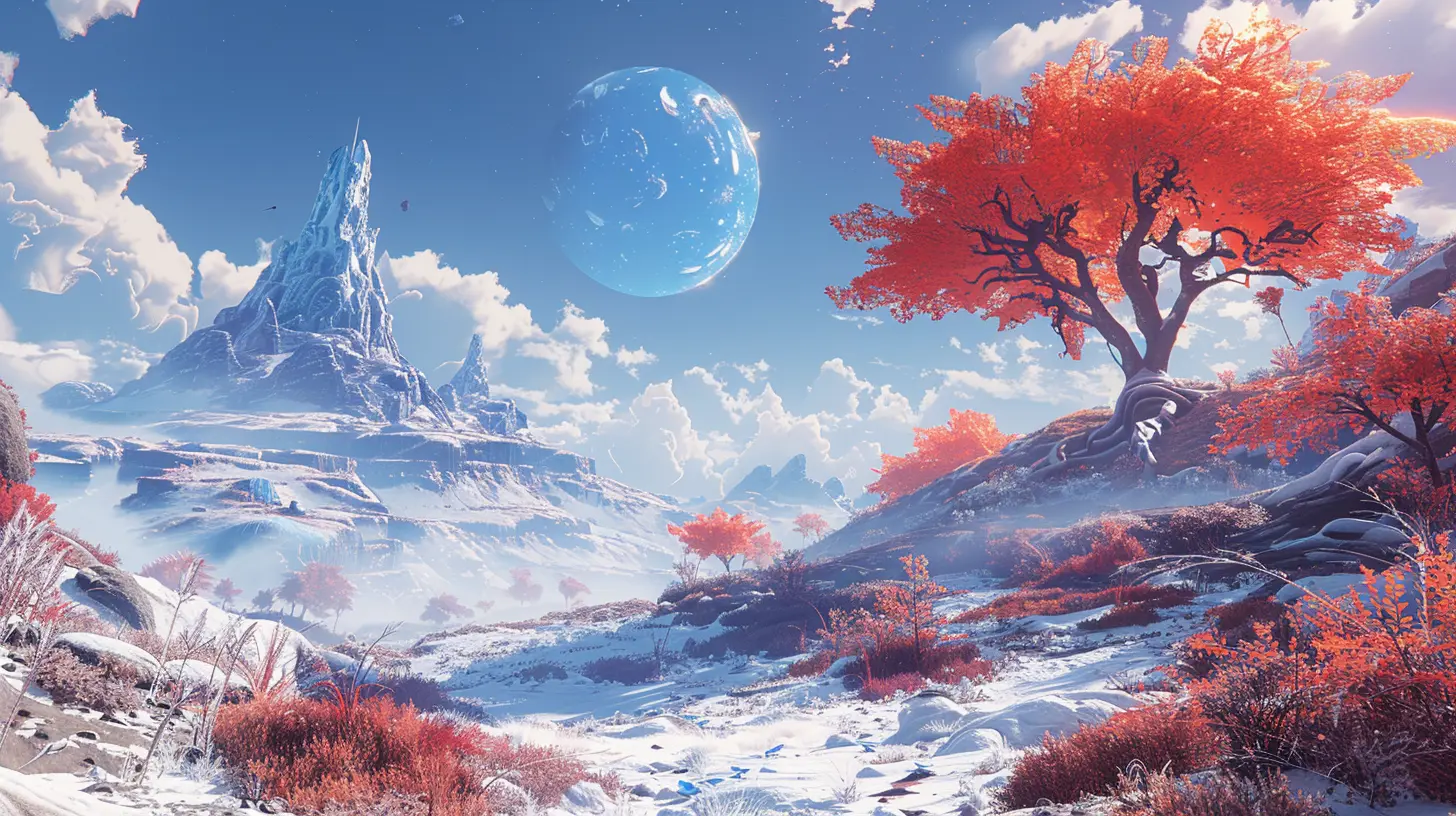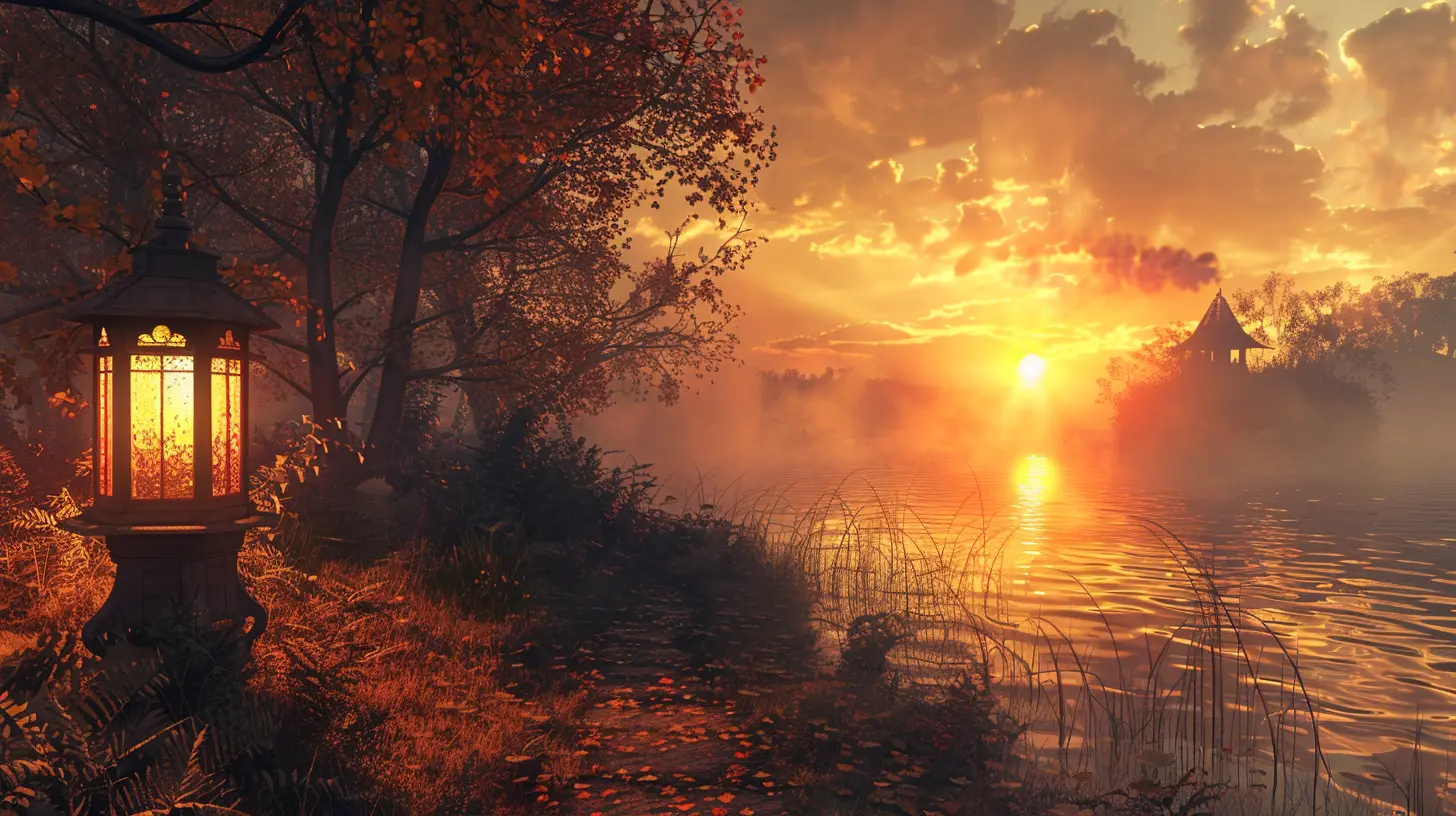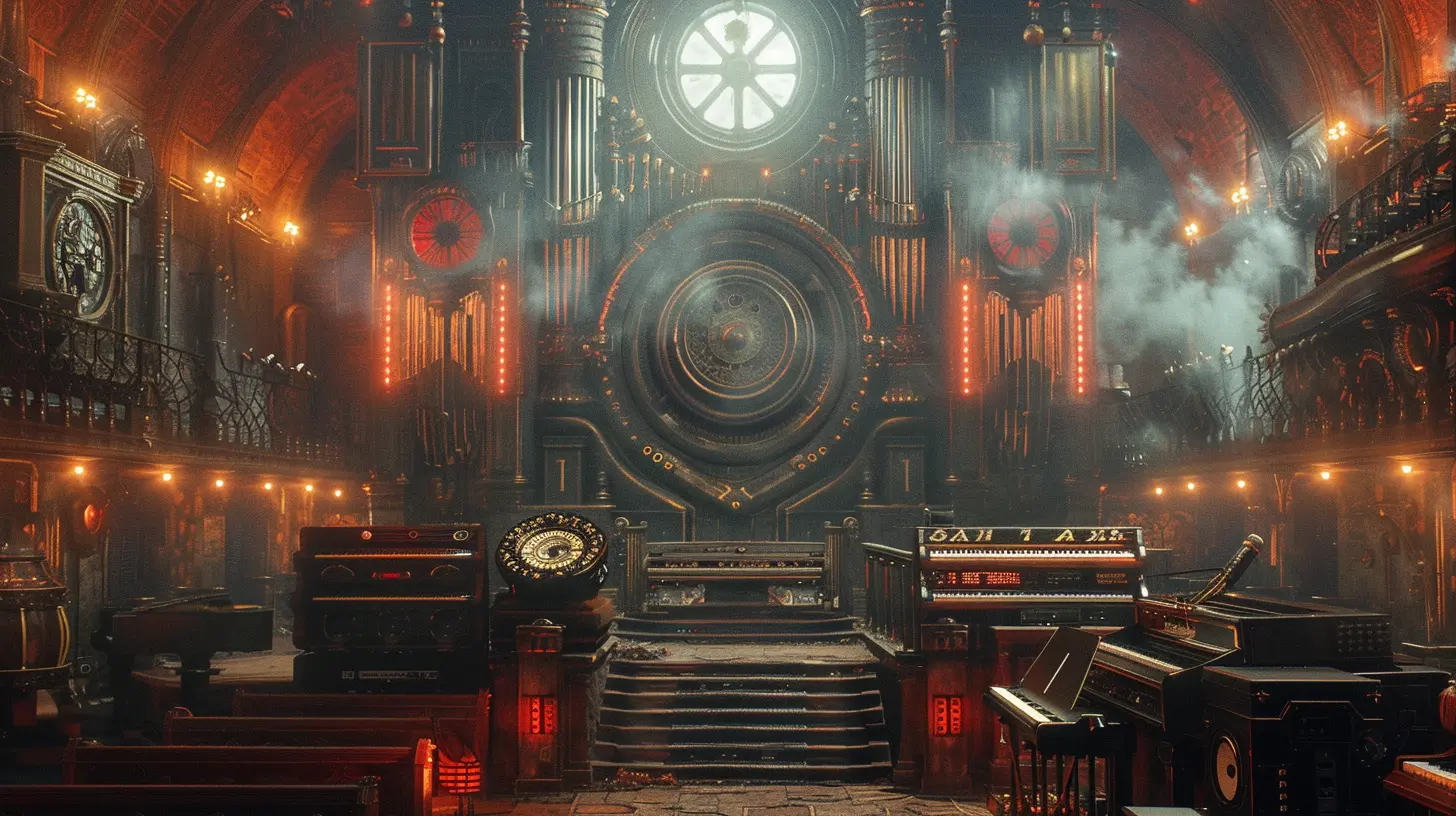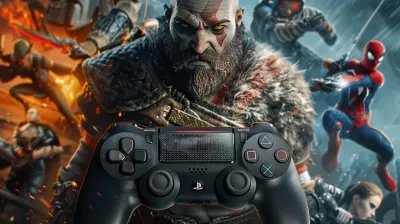Exploring the Role of Music in Setting Game Atmosphere
10 April 2025
When we think about gaming, our minds often jump to visuals, gameplay mechanics, or storylines. But let’s pause for a second and think about this: what is it that makes games truly immersive? Sure, stunning visuals and tight controls matter, but have you ever considered how much music plays a role in making a game feel alive? Music is like the secret sauce of gaming—it’s not always the first thing you notice, but without it, the experience would feel incomplete. Imagine playing a horror game without eerie background music or an epic boss fight without adrenaline-pumping tunes. It just wouldn’t hit the same, right?
In this article, let’s dig into how music shapes and enhances the atmosphere of games. Whether it’s cranking up the tension, tugging at your heartstrings, or just setting the vibe for exploration, music is the invisible thread that ties everything together.
The Emotional Impact of Music in Games
Think about the last game that really stuck with you. Chances are, the music had something to do with it. Music has this incredible knack for evoking emotions. It’s why sad songs make us cry, or why upbeat tracks can instantly boost our mood. In games, this emotional connection becomes even more powerful because you're an active participant in the story.Take The Legend of Zelda: Breath of the Wild, for example. Its soundtrack is sparse but purposeful, with soft piano melodies during exploration that make Hyrule feel vast yet serene. Then, during battles, the music ramps up, injecting urgency and excitement. Without the soundtrack, the world might still look beautiful, but it wouldn’t feel the same.
Or how about The Last of Us? Gustavo Santaolalla’s haunting guitar riffs perfectly complement the game’s themes of loss, survival, and human connection. Even if you’re not actively noticing it, the music subtly heightens every moment, making the story hit harder. It's like adding seasoning to food—you might not always focus on it, but you'd definitely notice if it were missing.
Setting the Scene: Music as a World-Building Tool
Music doesn’t just tug at your emotions—it also plays a huge role in grounding you in the game’s world. It sets the tone, giving you a sense of place and time. Developers use music as a way to tell you, “Hey, this is what this world feels like.”Think about Skyrim. The Dragonborn theme is iconic, with its booming choir and dramatic percussion. The moment you hear it, you know you’re in a world filled with epic quests and ancient lore. But Skyrim’s quieter background tracks, like the ones that play while wandering through snowy mountains or dense forests, are just as impactful. They make the world feel alive, and more importantly, they make you believe in it.
On the other hand, games like Cyberpunk 2077 use music to create a gritty, futuristic vibe. Its synth-heavy soundtrack screams "neon-lit dystopia," and it meshes perfectly with the game’s aesthetic. Without that music, would Night City feel as electrifying? Probably not.
Dynamic Music: Adapting to Player Actions
Here’s where video game music gets really cool: it’s dynamic. Unlike a movie, where the soundtrack is fixed, game music can adapt to what you’re doing. This makes the experience feel more personal, like the game is reacting to you.Take Red Dead Redemption 2, for instance. When you’re riding through the wilderness, the music shifts depending on the time of day or what’s happening in the story. At times, it’s barely noticeable, like a gentle hum in the background. But during an intense chase or a pivotal moment, the music crescendos, pulling you deeper into the action.
Another great example is DOOM (2016). The game’s music, composed by Mick Gordon, is a masterclass in dynamic audio. As you rip-and-tear your way through demons, the heavy metal soundtrack evolves in real-time, syncing with your actions. The more chaotic the battle, the more intense the music gets. It’s almost like the game itself is headbanging along with you.
Genre-Specific Soundtracks: Tailoring the Experience
Let’s be real—different types of games need different types of music. What works for a first-person shooter isn’t going to fly in a cozy farming simulator. The best soundtracks understand the genre they’re in and cater to what players expect.For instance, horror games need creepy, unsettling music to keep players on edge. Just think about the Resident Evil franchise. Its use of low, droning sounds and sudden musical stingers can make even the bravest players jump out of their seats. Meanwhile, games like Animal Crossing go for something completely different. Its cheerful, laid-back tunes are designed to make you feel relaxed, like you’re on a mini vacation.
RPGs often strike a balance. They need epic battle tracks, serene exploration music, and emotional pieces for key story moments. Games like Final Fantasy and Chrono Trigger are legendary for their soundtracks, which have become just as beloved as the games themselves.
Nostalgia and Recognizability: The Power of Iconic Themes
Some game music doesn’t just set the mood—it becomes iconic in its own right. Certain themes are so ingrained in gaming culture that even non-gamers recognize them. Think about the Super Mario Bros. theme. It’s upbeat, catchy, and instantly transports you to the Mushroom Kingdom. It’s not just music—it’s a piece of gaming history.The same goes for Halo’s Gregorian chant-inspired theme. The moment those voices kick in, you’re ready to suit up as Master Chief. It’s like an anthem that pumps you up for adventure.
These iconic tracks hold a special place in players’ hearts because they’re tied to memories and experiences. Hearing them years later can bring back a flood of nostalgia, reminding you of the hours you spent exploring, battling, or just having fun.
Soundtracks That Stand Alone: Games as Musical Masterpieces
One of the coolest things about game music is that it often stands on its own as a work of art. Plenty of game soundtracks have found life outside of the games themselves, with fans listening to them while working, studying, or just relaxing. Artists like Koji Kondo (Zelda), Nobuo Uematsu (Final Fantasy), and Marty O’Donnell (Halo) are celebrated not just for their contributions to games, but for their musical genius.In fact, some game soundtracks have even been performed by orchestras, like Video Games Live. These concerts celebrate how far game music has come, showing that it can be just as impactful and complex as movie scores.
The Science of Sound: Why Game Music Works So Well
So, why does music have such a profound effect on us? It all comes down to psychology. Music taps into our brain’s reward system, triggering emotions and memories. In games, where you’re actively engaged, this effect is amplified.Studies have shown that certain tempos, keys, and instruments can evoke specific feelings. For example, a slow, minor-key melody can make us feel sad or introspective, while a fast-paced, major-key track can pump us up. Game composers use this knowledge to manipulate our emotions, pulling us deeper into the experience.
Conclusion: Music as the Unsung Hero of Gaming
At the end of the day, music is the glue that holds a game’s atmosphere together. It’s what makes a good game great and a great game unforgettable. Whether it’s subtly guiding your emotions, immersing you in a world, or reacting to your every move, music is always there, working its magic.So, next time you’re playing a game, take a moment to really listen. Pay attention to how the music makes you feel, and how it changes based on what’s happening in the game. You might just find a new appreciation for this often-overlooked aspect of gaming.
all images in this post were generated using AI tools
Category:
Game DevelopmentAuthor:

Greyson McVeigh
Discussion
rate this article
5 comments
Parker Whitley
Music is the heartbeat of gaming. It transcends visuals, immerses players in worlds, and evokes profound emotions. A well-crafted score can elevate even the simplest gameplay, making it memorable. Developers must prioritize soundtracks as essential tools, not mere background noise, to enhance the overall gaming experience. Let’s celebrate this powerful medium!
May 9, 2025 at 4:14 AM

Greyson McVeigh
Absolutely! Music truly shapes the gaming experience, enriching narratives and deepening immersion. Prioritizing soundtracks is essential for creating memorable moments in gameplay. Let's continue to celebrate this vital component of game design!
Zevonis McCune
Music is the heartbeat of gaming, shaping emotions and enhancing immersion, transforming experiences into unforgettable journeys beyond mere gameplay.
April 28, 2025 at 2:46 AM

Greyson McVeigh
Thank you for your insightful comment! I completely agree—music truly elevates the gaming experience, making it a vital component of immersive storytelling.
Kael Dorsey
Music shapes our gaming experiences, transporting us to vibrant worlds and deepening our emotional connections. Let’s celebrate how these melodies enhance storytelling and elevate every adventure we embark upon!
April 18, 2025 at 4:51 PM

Greyson McVeigh
Absolutely! Music is a powerful tool that enriches our gaming journeys, enhancing storytelling and immersing us in the worlds we explore. It truly elevates every adventure!
Taylor Klein
Music is essential; it transforms gameplay and immerses players in unforgettable experiences.
April 18, 2025 at 3:14 AM

Greyson McVeigh
Absolutely! Music not only enhances emotional engagement but also shapes the entire gaming atmosphere, creating memorable moments for players.
Fallon Henderson
What an intriguing topic! Music truly transforms gameplay, shaping emotions and immersing players in the experience. I’d love to hear more about specific examples where soundtracks have significantly impacted game atmospheres. Great read!
April 14, 2025 at 4:46 PM

Greyson McVeigh
Thank you! I'm glad you found it intriguing. Music really does enhance gameplay! I'll definitely include specific examples in future discussions. Stay tuned!
MORE POSTS

Exploring Why Some Popular Games Still Don’t Support Cross-Platform Play

Space Colony Simulators: Building and Managing New Galactic Civilizations

Creating Dynamic Political Systems in Game Worlds

How Forum Debates Shape Game Balancing Decisions

How to Build Hype for Your Indie Game Before It's Released